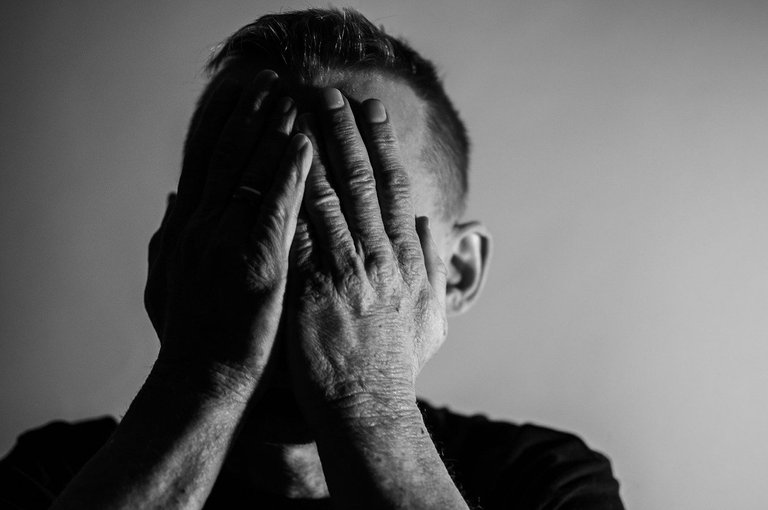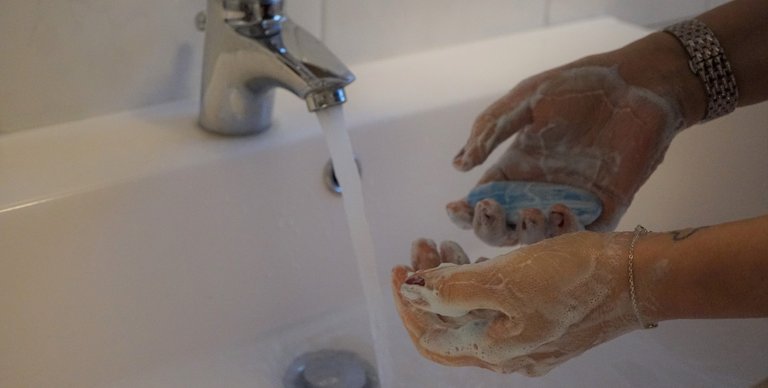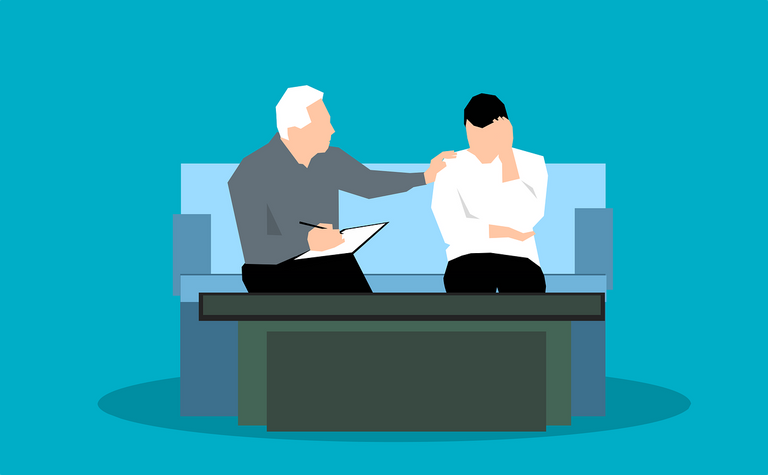
“Mental health problems don’t define who you are. They are something you experience. You walk in the rain and you feel the rain, but, importantly, YOU ARE NOT THE RAIN.”
The moment we forget to be kind to our minds, we are forced to strangle ourselves once more with the never ending stigma,prejudice and discrimination attached to it. Again we see ourselves refusing to seek help and instead immersed ourselves with the useless validation we get from this capitalistic society we're living in.
This article is a continuity of my previous post about, Psychology Chronicles Series #26: Validating Feelings & Emotions | Is It Okay To Not Be Okay?, which I think is a very relevant topic to address to especially in this crisis that we're going through. Although, I have stated on my previous article that the unexplained & erratic feelings that we felt in this pandemic is valid and normal it is also important that we talk about the possibilities of unconsciously pushing ourselves to our limits in order to cope.
THREATS IN THE AIR | MENTAL HEALTH IMPLICATIONS TO WATCH OUT FOR
In an article by "National Alliance on Mental Illness " here are 4 potential symptoms to be acknowledged to further lessen the impact brought by the global pandemic.
ANXIETY

According to a " Chinese Psychology Society survey", roughly 18,000 people stated that they have experienced anxiety symptoms associated with the COVID19 outbreak. This resulted to a sudden toll of hotline calls related to this mental health concern- people fear about catching the virus as they try their best to stay at home.
A volunteer group of 400 therapists called ‘Yong Xin Kang Yi’, which roughly translates to ‘Use Heart to Fight the Virus’, focuses on extending their help to overworked medical staff in Wuhan, the epicenter of the virus. “They leave messages saying they’re tired, that they’re scared,” Cui said. “Even the doctors don’t know if they’re going to get infected or if their co-workers are going to get infected, and they don’t know how bad it’s spreading, which makes the anxiety become worse".
A poll by the "KFF or Kaiser Family Foundation" results to these common worries related to the coronavirus crisis:
- Fear of own or a member of the family contracts the virus.
- Fear of losing money and investments.
- You will lose your job.
- Fear of not being able to afford treatment or vaccine.
- You will put yourself at risk of exposure to the virus because you can’t stay at home and miss work because you need to work for financial obligations.
OBSESSIONS

In an article posted in the 'Psychiatric Times" Psychiatrists and psychologists worry about the presence of contamination obsessions and even worsening of OCD symptoms to actual OCD (Obsessive Compulsive Disorder) patients during the coronavirus pandemic.
Contamination obsessions are unwanted, intrusive worry that one is filthy and in need of washing, cleaning, or sterilizing, common symptoms in patients with OCD. Perceptual experiences , understandably would elevate obsessions. Sensory experiences, have been found in up to 75 % of patients with OCD. Extreme sensory experiences like pseudo-hallucinations are related to worsened control over compulsions and poor rational judgement. Social media news overload associated with a tendency to overestimate threat in individuals with OCD. This may increase sensitivity and anxiety to the panic associated with coronavirus threats and further destabilize patients and increase functional disability.
Cleaning and washing compulsions which are core features of OCD are undeniably present to some people in fear of contracting the virus.
LONELINESS

According to a new "University of Stirling study" Social distancing as a precautionary measure to avoid the coronavirus is increasing feelings of loneliness in Scotland's older population and impacting their mental health. The research has identified a connection between increased cases of loneliness in people over 60s and the worsening of both physical and metal health. Elevation of loneliness due to social distancing was linked with a smaller social group, lower perceived social support and a sudden decline in wellbeing.
The student conducted, which involved a survey of 1,400 older adults, studied the impact of social distancing during the outbreak on social activity, loneliness and wellbeing. The majority of adults stated that social distancing has made them experience even more amount of loneliness, social contact with even lesser people, and less social contact.
This highlights the essence of addressing loneliness and social contact in older adults, but particularly during outbreaks or circumstances where the risk of isolation which results to loneliness is high."
TRAUMATIC STRESS

According to a recent research titled "The psychological impact of quarantine and how to reduce it: rapid review of the evidence" people who have been quarantined may also experience the horrors of traumatic stress. A survey of individuals subject to quarantine during the SARS outbreak in 2003 found that nearly 29% experienced traumatic stress.
Traumatic stress is a common term for receptive anxiety and depression, it is not a medical term and is not included in the Diagnostic and Statistical Manual of Mental Disorder. Traumatic stress include symptoms of anxiety, depression and interference behavior . This may occur from experiences that are less threatening and distressing than those that lead to the actual disorder- PTSD or post-traumatic stress disorder. During this pandemic stressors like longer quarantine duration, worry of infection, loneliness, boredom, inadequate supplies, poor information, loss of money, and stigma may all contribute to an increase of traumatic stress.
With all of these mental health challenges in mind, always remember that it is totally normal to feel stress and worry during a crisis. But multiple challenges daily, such as the effects of COVID-19 pandemic, can sometimes push you beyond your ability to cope.
Be Kind To Your Mind | Flourish It By Seeking Help if Necessary
If the behaviors you've been experiencing in this outbreak have been excessively unnecessary and shows the four red flags of abnormal behavior, then it's time you seek help.

Accepting that you’re struggling with a mental health issue can be quite challenging. Seeking help from professional mental health services can feel even more discouraging—but it shouldn’t be this way.
Seeking help for your psychological well being is the first and the most important step for being kind to your mind.
Let your mind flourish, you need it to survive especially in this trying times...
Love & Light,
@sakura1012
References:
1. "KFF Coronavirus Poll: March 2020"
2. "Managing mental health during COVID-19"
3."Coronavirus: Mental Health Coping Strategies"
4. "Psychiatrists Beware! The Impact of COVID-19 and Pandemics on Mental Health"
5. "Chinese public dial in for support as coronavirus takes mental toll"
6. Social distancing is increasing loneliness in older adults"
Further Reading:
- Gale SD, Berrett AN, Erickson LD, et al. Association between virus exposure and depression in US adults. Psychiatry Res. 2018;261:73-79.
- Hawkley, L. C., Wroblewski, K., Kaiser, T., Luhmann, M., & Schumm, L. P. (2019). Are U.S. older adults getting lonelier? Age, period, and cohort differences. Psychology and Aging, 34(8), 1144–1157.
Images:

